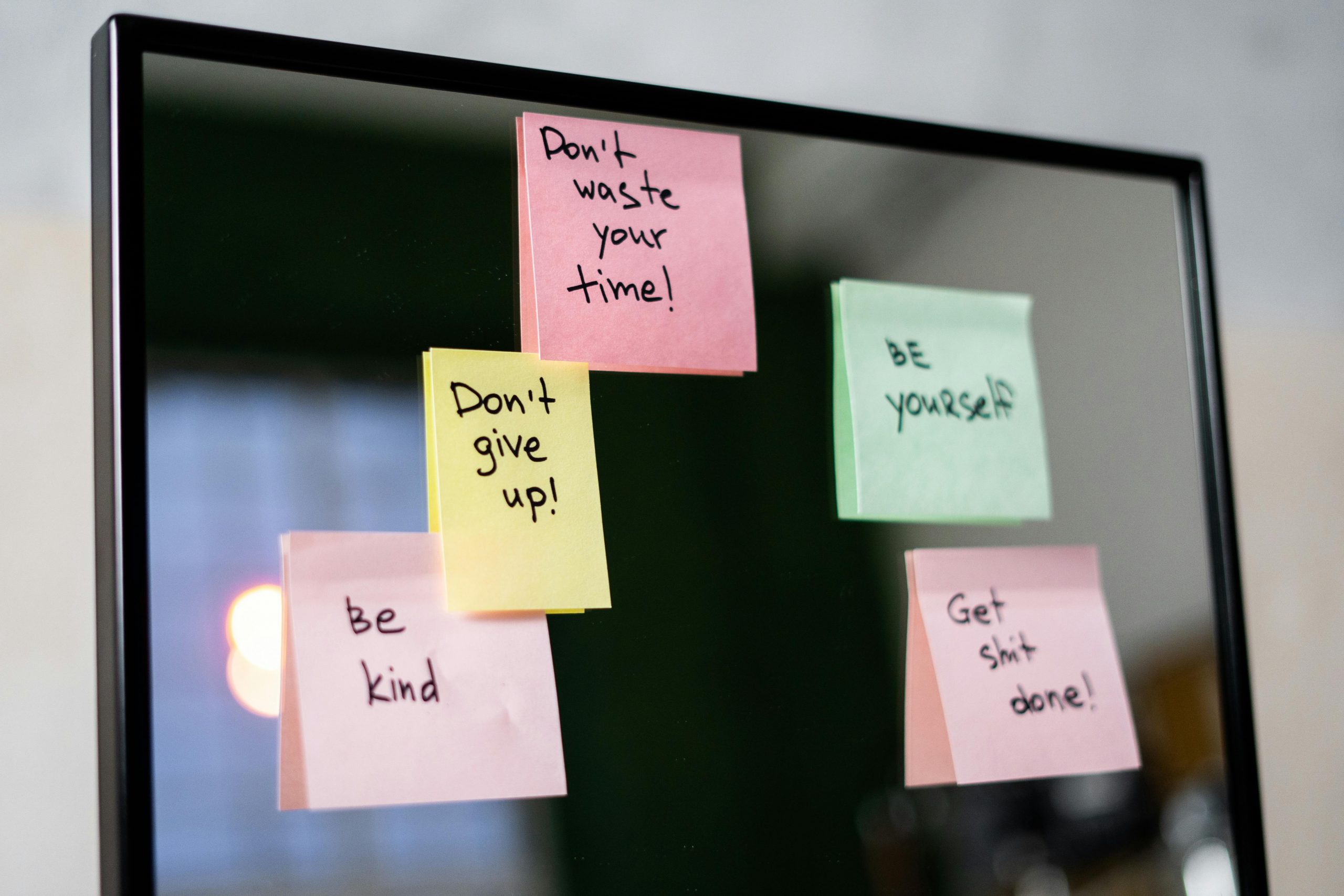Disclaimer: Charms Ville. This site provides fashion and lifestyle content for informational purposes only.
Learning how to work on yourself is one of the best investments you can make. It improves your relationships, confidence, and well-being. Self-improvement isn’t just for people going through a hard time—it’s for anyone who wants to grow, live better, and feel more fulfilled.
You don’t need a major life change to get started. Small, daily habits can add up to big results. Whether you’re trying to build better habits, become more positive, or boost your self-esteem, self-growth is a lifelong journey worth taking.
This guide breaks down simple ways to grow mentally, emotionally, and physically—at a pace that works for you.
1. Set Goals for Growth

Setting goals helps you know where you’re headed. Without a target, it’s easy to stay stuck or wander without direction.
How to set personal goals:
- Write down what you want to improve—like confidence, fitness, or time management.
- Make your goals specific and measurable (e.g., “read one book a month”).
- Break big goals into smaller steps to avoid feeling overwhelmed.
- Check in weekly to track progress and adjust if needed.
Goals give you purpose and help you stay focused on becoming your best self.
2. Practice Self-Reflection
Self-reflection helps you understand your thoughts, feelings, and behaviors. It’s about pausing to ask: “Why did I do that?” or “What can I learn from this?”
Ways to reflect:
- Keep a journal to write about your day and emotions.
- Ask yourself daily questions like: What went well today? What didn’t?
- Take time alone—without distractions—to think quietly.
Self-awareness is the first step in making real, lasting change.
3. Learn New Skills
Working on yourself includes sharpening your mind. Learning something new keeps your brain active and builds confidence.
Easy ways to learn:
- Watch educational videos or listen to podcasts.
- Read books on topics that interest you.
- Take online classes—many are free!
- Try a hobby like cooking, drawing, or playing music.
Learning reminds you that growth never stops—and it doesn’t have to be boring.
4. Take Care of Your Body
Physical health is a big part of self-improvement. When you feel good physically, you think and act more clearly.
Healthy habits to build:
- Get at least 7–9 hours of sleep each night.
- Drink plenty of water and eat more whole foods like fruits, vegetables, and grains.
- Exercise regularly—even a 20-minute walk counts.
- Avoid junk food, smoking, and too much alcohol.
A strong body helps support a strong mind and spirit.
5. Improve Your Mental Health
Your thoughts affect how you feel and behave. Learning how to handle stress, anxiety, or negative thinking is key to personal growth.
Tips to support mental wellness:
- Practice deep breathing or mindfulness for 5–10 minutes a day.
- Talk to a therapist if you feel stuck or overwhelmed.
- Use positive self-talk instead of being your own worst critic.
- Limit screen time and take breaks from social media.
Caring for your mental health helps you stay balanced and resilient.
6. Build Better Relationships

Healthy relationships help you feel supported and understood. They also push you to grow by teaching empathy and communication.
How to grow through connection:
- Be honest about your feelings and listen to others without interrupting.
- Set boundaries when needed. It’s okay to say no.
- Show appreciation. A simple “thank you” can strengthen a bond.
- Choose friends who inspire you to grow, not those who hold you back.
Personal growth often happens in community—not in isolation.
7. Create Positive Daily Habits
Your habits shape your future. Repeating small actions every day can lead to major self-improvement over time.
Habits to build:
- Start the day with a morning routine: stretch, read, or set goals.
- Limit distractions like excessive phone use.
- Use a planner or to-do list to stay organized.
- Reflect and wind down before bed—no screens for 30 minutes.
Focus on progress, not perfection. Good habits are the building blocks of personal success.
8. Face Your Fears
Fear holds many people back from growing. Whether it’s fear of failure, rejection, or change, facing it builds strength.
How to get braver:
- Do one thing each week that scares you a little (like public speaking or trying a new class).
- Break scary tasks into smaller, manageable steps.
- Celebrate even tiny wins. They show you’re growing.
- Remind yourself that mistakes are part of learning.
The more you face fears, the less power they have over you.
9. Practice Gratitude
Gratitude helps you focus on what’s good instead of what’s missing. This simple habit can boost your mood and make you kinder to yourself and others.
How to be more grateful:
- Write down 3 things you’re thankful for each morning or night.
- Say “thank you” often—to people and for little moments.
- Focus on simple joys: sunshine, a good meal, or a kind word.
Grateful people tend to be happier, more patient, and more compassionate.
10. Forgive and Let Go
Holding onto anger, mistakes, or regrets keeps you stuck. Forgiveness frees up energy for growth and peace.
Ways to practice forgiveness:
- Write a letter to yourself or someone else—even if you don’t send it.
- Remind yourself that everyone makes mistakes.
- Focus on what you’ve learned rather than what went wrong.
Letting go doesn’t mean forgetting—it means choosing your future over your past.
11. Be Consistent (Even When It’s Hard)
Self-improvement isn’t about big changes overnight—it’s about steady, consistent effort. There will be days you feel tired or unmotivated, and that’s okay.
Stay on track by:
- Setting reminders or habits that stick (like leaving your book by your bed).
- Being kind to yourself on tough days.
- Focusing on one goal at a time so you don’t burn out.
- Celebrating small milestones.
The key is to keep going. Tiny steps each day lead to huge changes over time.
12. Find Purpose in What You Do
Having a sense of purpose can drive your actions and help you feel fulfilled. It doesn’t have to be a big mission—it can be as simple as helping others or doing work you care about.
How to find purpose:
- Ask yourself what you care about most.
- Think about what makes you feel useful or excited.
- Volunteer or help someone in need.
- Try different paths until something feels right.
Purpose keeps you going even when things get hard.
13. Limit Negative Influences
Not everything you watch, hear, or read is good for your growth. Be mindful of the voices and content you surround yourself with.
How to protect your peace:
- Take breaks from social media or negative news.
- Spend less time with people who drain your energy or discourage your goals.
- Follow accounts or read books that inspire and uplift you.
- Replace criticism with curiosity—ask “how can I grow?” instead of “what’s wrong with me?”
Staying positive helps you stay on track with your self-improvement goals.
14. Be Patient with the Process
Growth takes time. You won’t become your best self overnight, and that’s okay. Be patient and gentle with yourself as you grow.
- Don’t compare your journey to someone else’s.
- Remember that small progress is still progress.
- Keep showing up—even on the tough days.
Working on yourself is a lifelong journey. The key is to keep moving forward, one step at a time.
Conclusion: Becoming Your Best Self
Now that you know how to work on yourself, it’s time to take action. Pick one or two areas to start with—like building better habits or improving your mindset. Don’t try to do everything at once.
Working on yourself isn’t about being perfect. It’s about being honest, curious, and committed to growth. Over time, these small daily efforts lead to big changes in how you feel, think, and live.
And remember—if you’re wondering how to be a better person, the answer often starts with working on yourself first. When you grow, the people and world around you benefit too.


